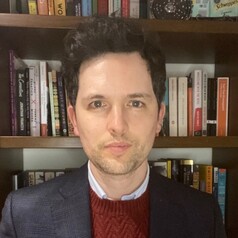
Luke Melchiorre
Associate Professor, Political Science and Global Studies, Universidad de los Andes
I am an Associate Professor in the Department of Political Science and Global Studies at Universidad de los Andes. My research engages debates that straddle Africanist political science, critical development studies and history. My broader research and teaching interests include African politics (with a focus on East Africa), the political economy of development and state-building, youth politics and a critical and comparative assessment of democracy and its discontents in the Global South, with a focus on the political phenomenon of populism.
Less ![]()

Luke Munn
Research Fellow, Digital Cultures & Societies, The University of Queensland
Luke Munn is a Research Fellow in Digital Cultures & Societies at the University of Queensland. His wide-ranging work investigates the sociocultural impacts of digital cultures, from data infrastructures in Asia to platform labor and far-right radicalisation, and has been featured in highly regarded journals such as Cultural Politics, Big Data & Society, and New Media & Society as well as popular forums like the Guardian, the Los Angeles Times, and the Washington Post. He has written five books: Unmaking the Algorithm (2018), Logic of Feeling (2020), Automation is a Myth (2022), Countering the Cloud (2022), and Technical Territories (2023 forthcoming). His work combines diverse digital methods with critical analysis that draws on media, race, and cultural studies.
Less ![]()

Luke Plutowski
Senior Statistician and Research Lead, Vanderbilt University
Luke Plutowski is a Senior Statistician at LAPOP Lab at Vanderbilt University, where he coordinate nationwide surveys in four countries, lead data visualization tasks, present results for non-technical audiences, and head lab research on statistics and survey methodology.
Less ![]()
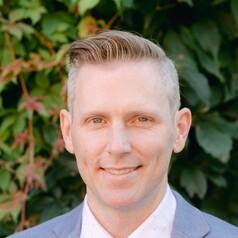
Luke Rowe
Lecturer and Researcher (Science of Learning), Australian Catholic University
Dr. Luke is a lecturer and researcher at Australian Catholic University’s (ACU) National School of Education, Melbourne, Australia. His teaching and research interests involve the brain and the science of learning, evidence-based teaching, and health education.
Less ![]()
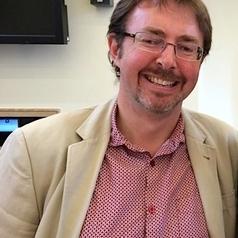
Luke Thurston
Senior Lecturer in Modern Literature, Aberystwyth University
Luke is Senior Lecturer in Modern Literature, whose teaching covers mainly Victorian and modernist literature, as well as literary theory. He is an internationally-recognized scholar who has been writing on psychoanalysis and literature for more than two decades, and whose more recent work on the ghost story has contributed to significant new developments in literary studies. Luke worked as a postgraduate student in Paris, and has translated several important books by French psychoanalysts, including André Green and Jean Laplanche.
Luke's main research interests are in modernist literature, psychoanalysis, deconstruction, the ghost story, literature and war, Welsh and Irish writing in English. He has published on Dickens, M. R. James, Joyce, Henry James, May Sinclair, Wyndham Lewis, David Jones, Beckett, Pessoa, Elizabeth Bowen, Margaret Oliphant, Freud, Lacan and Laplanche. He is a member of the Editorial Committee for a new edition of the works of May Sinclair, currently in production with Edinburgh University Press. Luke is the translator of several works by Jean Laplanche, including most recently The Unfinished Copernican Revolution (2020) and is Director of the David Jones Centre
In 2010 Luke took part in a film about Joyce, psychoanalysis and Trieste, made by an Italian television company. See http://www.youtube.com/watch?v=kl4zk3UmV54
Less ![]()

Luke Wilkins
Lecturer in Sport and Exercise Science, La Trobe University
Dr Luke Wilkins is a lecturer in sport and exercise psychology within the Sport and Exercise Science department. He is subject coordinator for Motor Behaviour in Sport (SPE3MBS) and Talent Identification and Development (SPE3TID). Originally from the United Kingdom, Luke obtained his PhD from The University of Birmingham, where he explored how visual, perceptual, and cognitive skills impact sporting performance. He has held lecturing positions at Newcastle University and Nottingham Trent University, teaching on various modules related to skill acquisition and sports psychology. Between 2018 and 2020 Luke worked in the United States of America for the New York Yankees baseball organization as a sport scientist and lead skill acquisition specialist.
Luke is involved in a number of global research collaborations which include projects exploring the use of the pink ball in cricket, the gaze behaviour of baseball batters, and how virtual reality (VR) technology can be used to enhance sporting performance. He is currently working closely with UK-based VR company ‘Rezzil’ and Premier League football club Aston Villa and is also part of a Department of Defence funded project here at La Trobe.
Less ![]()
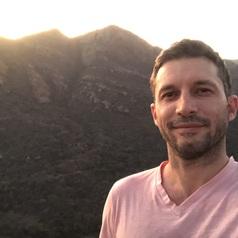
Luke Mangaliso Duncan
Postdoctoral Fellow, University of Warwick
Since an early age I have always had a fascination for nature and animals. Following an undergraduate degree in zoology and ecology, I completed my PhD focusing on the influences of the captive environment on the behaviour and welfare of chimpanzees at the Johannesburg Zoo. I have subsequently conducted worked on other species, including Damaraland mole rats, chacma baboons, vervet monkeys, samango monkeys and leopards and have also conducted research into human behaviour and psychology. My areas of interest are animal behaviour and human and animal psychology, with a particular interest in primate cognition and space use. I have worked in a wide range of contexts, ranging from animal welfare in South Africa to managing research field sites. Additionally, I have been involved in student supervision and lecturing for various institutions.
Less ![]()
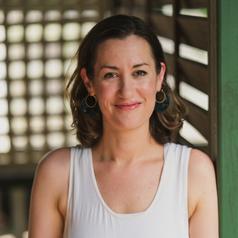
Lula Dembele
Lived experience research assistant, The University of Melbourne
Lula is one of the WEAVERS lived experience panel of co-researchers that are part of the Centre of Research Excellence - Safer Families https://www.saferfamilies.org.au/weavers.
In 2022 she co-authored “Lamb, K., Dembele, L., Nina and Fiona, Hegarty, K (2022). A Framework for the ethical co-production of research with victim survivors of intimate partner and sexual violence: Draft for Discussion, University of Melbourne: Australia and World Health Organisation, Switzerland.” and she participates in other WEAVERS projects such as their work with the Australian Institute of Health and Welfare research on domestic, family, and sexual violence.
Lula is also on the QUT Centre for Justice Gender and Violence Advisory Board, Department of Health Expert Reference Group for Family, Domestic and Sexual Violence, and the National Plan (To End Violence Against Women and Children) Advisory Group. She is one of the co-founders of the Independent Collective of Survivors, and founder of the Accountability Matters Project which seeks to drive collective action to reduce men's use of domestic, family, and sexual violence.
Lula is currently Director of Lived Expertise, Government Relations, and Advocacy for the Australian first, Women's Trauma Recovery Centre. Lula also works as a victim survivor lived expertise consultant, including with the Australian National Research Organisation on Women's Safety and is an Ambassador for Bravehearts.
Less ![]()

Lulu Shi
Lecturer, Department of Education and Research Associate, Oxford Internet Institute, University of Oxford
Lulu is a lecturer at the department of education at the University of Oxford and a research associate at the Oxford Internet Institute and the sociology department. She is a sociologist and her research spans technology, education, work and employment and organisations.
Lulu leads a project funded by the British Academy, which investigates how educational technology (EdTech) transforms education. Specifically, the project studies the role of EdTech firms – who can be seen as the architects behind the technology – in shaping education by considering the socio-political contexts they are embedded in.
She also works on the project DomesticAI at the Oxford Internet Institute. In this project she focuses on the transformation of paid and unpaid work in the age of AI and robotics. With her team she designed a cross-national harmonised factorial survey experiment.
During her doctoral studies, she researched on the labour market, skills formation systems and organisation studies with a country comparative focus.
Lulu teaches the MSc programme Digital and Social Change and supervises MSc students, focusing on technology and society.
Less ![]()
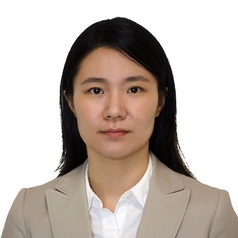
Lulu Zhao
Assistant Research Scientist in Climate and Space Sciences and Engineering, University of Michigan
Dr. Lulu Zhao is an assistant research scientist in the Climate and Space Sciences and Engineering. Her research focus is the modelling of the acceleration and transport of energetic particles using M-FLAMPA (multiple-field-line-advection-model with particle acceleration). The M-FLAMPA model extract magnetic field lines from the magnetohydrodynamics (MHD) simulations of the background solar wind solution through SWMF (space weather frame work). Along those magnetic field lines, the particle transport and acceleration are modelled by solving the particle transport equations.
Less ![]()
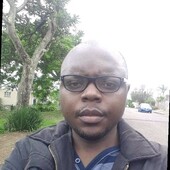
Lumbumba Taty-Etienne Nyamayoka
Researcher and PhD candidate: Future Electrical Energy Technology (FEET) Research Group (School of Electrical and Information Engineering), University of the Witwatersrand
Less ![]()

Luminita Enache
Associate Professor of Accounting and Future Fund Fellow, Haskayne School of Business, University of Calgary
Luminita Enache is an Associate Professor (with tenure) and a Future Fund Fellow. She joined the Haskayne School of Business in July 2018 as an Assistant Professor of Accounting. Her research interests lies at the intersection of accounting and finance, with a focus on empirical research that is closely guided by economic theory. Luminita is broadly focused on firms' information environment in capital markets, on the role intangibles plays in shaping the new economy firms, corporate governance and more recently on the health economics.
Prior to joining Haskayne School of Business, Professor Enache worked at Tuck School of Business and for the Master of Health Care Delivery Science Program at Dartmouth College. Luminita held visiting positions at the MIT, at the University of Michigan and at Columbia Business School in New York. Moreover, she has been a Lecturer of Accounting in New Zealand, at Victoria University of Wellington.
Professor Enache received her PhD in Economics and Management (with a concentration in Accounting) from the University of Padua (Italy) after spending part of her research period as a Visiting Ph.D. Scholar at the University of Michigan (U.S). Her dissertation won the European Institute for Advanced Studies (EIASM) Best Junior Contribution to the Development of Intangibles and Intellectual Capital Theory and Practice. Dr Enache also earned a B.A. in Finance and Banking and a B.S. in Nursing. Prior to joining academia, Luminita has worked as a Credit Analyst and as a Junior Relationship Manager for Raiffeisen Bank Romania.
Less ![]()
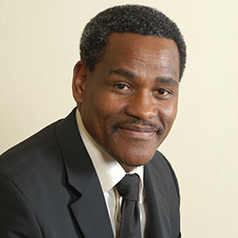
Lumkile Mondi
Senior Lecturer in Economics, University of the Witwatersrand
Mr Lumkile Patriarch Mondi is a Senior Lecturer at the School of Economics and Business Science of the University of the Witwatersrand in Johannesburg, South Africa. Mr Mondi is a strategist, economist and a leader. He has worked extensively in the African continent in his responsibility at the Industrial Development Corporation (IDC) where he was an executive for eleven years. He also serves on the Boards of Aerosud and listed companies such ArcelorMittal. He is the chairman of Thelo Rolling Stock Leasing. Mr Mondi has more than twenty years of postgraduate experience and over seven years working in financial markets. Mr Mondi is also involved in the BRICS think tanks in institutional strengthening and coordination. He has presented and participated in various conferences world-wide, including the UN, World Bank, BNDES and OECD.
Mr Mondi was employed by the Industrial Development Corporation of South Africa as a Chief Economist and Divisional Executive for Professional Services for the past ten years until 30June 2014. His role included positioning the IDC as a leader in development finance in Africa. In achieving this goal, Mr Mondi led a team of researchers, structured and project financers, capacity building and agencies. His responsibilities included overseing the analyses of the macro and micro economic environment (business, economic, industry and policy) globally and locally. As a consequence of this role, he has a respected thought leadership profile in South Africa and thorughout the region, where he writes, presents and comments on radio, print media and television on political economy.
Mr Mondi served in President Zuma’s State Owned Enterprises Presidential Review Committee. Previously Mr Mondi served as a member of President Mbeki’s Economic Advisory Panel. As a fellow of the African Leadership Initiative (ALI) an Aspen Institute Initiative, he is engaged in influencing leaders to be value based in tackling poverty, inequality and unemployment in pursuit of a better life for all.
Before joining the IDC in July 2003 Mr Mondi was the Deputy Treasurer at Transnet. He spent 7 years at Transnet, two years of which he was a Treasury Manager in the Group Finance Department at Transnet Limited. As a Treasury Manager, Mr Mondi was in charge of Treasury’s Assets and Liabilities Management, Cash Management and External Loans. His responsibilities were liquidity, currency and interest rate risk management. Mr Mondi was for more than 5 years involved in the Transnet Pension Fund as a Trustee and served in the Investment and the Administration (Benefit) Committees of the Fund.
Mr Mondi was the Group Economist at Transnet between 1996 and 2001. Mr Mondi was responsible for economic analysis and dissemination of strategic knowledge to all Transnet’s businesses. He is involved in the Trade and Industry Policy Strategy (TIPS) Group, particularly in analysing WTO policy on trade in services.
Mr Mondi was part of a team of trustees who negotiated the transformation of R36 billion Transnet Pension Fund into three separate identities. He was a member of the Investment Committee who decided on Asset Allocation, appointment of Fund Managers and management of Asset Managers. He is currently a trustee of the new R14 billion defined contribution fund.
Before joining Transnet Mr. Mondi worked for Deloitte & Touche Consulting Group as a Development and Financial Economics Consultant. He provided solutions to both private and public sector clients.
Education
MA Economics (Macroeconomics, international economics, public finance, and development economics). Eastern Illinois University, Charleston, Illinois, United States of America, 1993.
B.COM. (HONS) Economics. University of the Witwatersrand, Johannesburg, South Africa, 1992.
B.COM. (Economics, Business Economics, and Commercial Law). University of the Witwatersrand, Johannesburg, South Africa, 1990.
Further Training
Advanced Corporate Finance and Value Creation, University of Berkely Extension, 2000
Transnet. Esselen Park, 1999. Management Advancement Programme (MAP).
World Bank(EDI) & University of Maryland 1998, Washington DC. Currency and Financial Crisis: Early Warning Signals.
WEFA, Pretoria, 1998. Forecasting Techniques.
Less ![]()
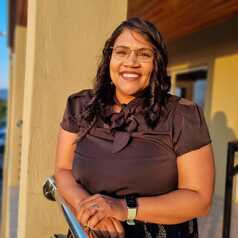
Luzaan Africa
Lecturer in the Interprofessional Education Unit , University of the Western Cape
I hold a BSc Physiotherapy, MSc Physiotherapy, and a PhD in Physiotherapy from the University of the Western Cape
Less ![]()
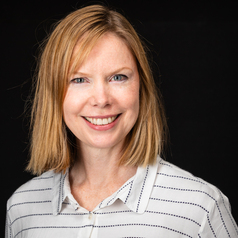
Luzita Fereday
Lecturer in Voice at the Western Australian Academy of Performing Arts., Edith Cowan University
Luzita Fereday is a voice and dialect coach who has been working in the Theatre and TV industry for over 20 years. For the past 12 years she has worked as a Lecturer in Voice teaching accents to Acting and Music Theatre Students at WAAPA (West Australian Academy of Performing Arts) in Perth. She also teaches internationally on the Shakespeare Summer School at RADA (Royal Academy of Dramatic Arts) in London. Luzita's latest work includes dialect coaching on: "BALI 2002" a four part TV Series on STAN/9 Network and her theatrical credits include: "Mary Stuart" with Kate Walsh for a Perth Festival production. Other recent theatre work includes: Hecate with Yirra Yaakin, Once- The Musical, The Tempest, Oklahoma, The Torrents, Fully Sikh, Water, In the Next Room, HIR, I Am My Own Wife with BSSTC (Black Swan State Theatre Company) and Mimma The Musical coaching the celebrated Australian Soprano Mirusia Louwerse.
Less ![]()

Lydia Brown
Senior Lecturer in Psychology, The University of Melbourne
Lydia is a Senior Lecturer in the School of Psychological Sciences and a practicing Clinical Psychologist. After receiving her PhD on self-compassion and menopause in 2015, she completed postdoctoral training at Harvard Medical School and The University of Melbourne on healthy aging.
Her research focuses on understanding and enhancing well-being during the menopause transition, and in the second half of life more generally.
Alongside research, Lydia has worked as a Clinical Psychologist for a number of years, supporting adults to manage mental health conditions such as depression, anxiety and recovery from trauma. She teaches primarily into postgraduate programmes at the university, helping train the next generation of psychologists in clinical skills.
Lydia’s research on menopause has been covered by media outlets internationally including The Chicago Tribune, Reuters Health, The Daily Mail and Mindful Magazine. She has appeared as an expert mental health commentator on Sky News, Nine News Australia and The ABC. She has also sat on the International Advisory Board for Headspace, one of the world’s leading mindfulness apps and creator of the Netflix series Headspace Guide to Meditation.
Less ![]()
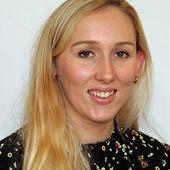

Lydia Harkin
Principal Lecturer in Psychology, Nottingham Trent University
Dr Lydia Harkin is an applied health researcher and Principal Lecturer in Psychology at Nottingham Trent University. Her main teaching and research interested are in cyberpsychology, health psychology, the social psychology of health, and the health psychology of chronic illness and older adulthood.
Dr Harkin's research has explore new digital technologies and their impact on health and wellbeing, typically considering ways to promote positive wellbeing through technological features. She has also examined how people impacted by health conditions and in older adulthood use technologies for their benefit. This has spanned online communities and communication online, online health information sites, videos, and podcasts, and digital applications for wellbeing. Her current research project include, amongst others, qualitative explorations of ways patients use online social media to advocate, and mixed methods examinations of trends in health and technology beliefs over time.
Less ![]()
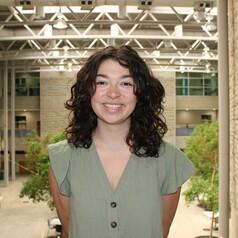
Lydia Johnson
Indigenous Co-Lead, Aki Kikinomakaywin; Alumni, School of Environmental Studies, Queen's University, Ontario
Lydia Johnson was born and raised on Robinson-Superior Treaty territory, homelands of the Anishinabek and Fort William First Nation and has mixed settler and Cree ancestry (Lac La Ronge Indian Band). She is a Masters of Environmental Studies student from the Queen’s University School of Environmental Studies. Her research — in partnership with Grand Council Treaty #3, the IISD-Experimental Lakes Area, and Environment and Climate Change Canada — focused on weaving Indigenous and Western ways of knowing in ecotoxicology and wildlife health with an aim of promoting collaborative and respectful science between Indigenous Peoples and Western-trained non-Indigenous scientists. Lydia is passionate about environmental protection and science communication and currently sits as a member of the Environment and Climate Change Canada Youth Council offering her an opportunity to be a voice for young people on government decisions related to environmental and climate issues.
Less ![]()

Lydia Kruse
Clinical Assistant Professor of Speech, Language and Hearing Sciences, Purdue University
I am a licensed Speech-Language Pathologist with expertise in voice and upper airway disorders. In my role as a Clinical Assistant Professor in the Department of Speech, Language, and Hearing Sciences at Purdue University, I engage in clinical and classroom teaching related to vocal anatomy and physiology, vocal pathologies, and the diagnosis and treatment of voice disorders. I provide clinical practicum experience for the graduate student clinicians in the Master's of Science in Speech-Language Pathology, which is ranked #2 in the nation by U.S. News and World Report.
Less ![]()
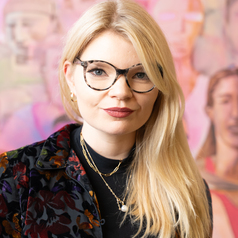
Lydia Merrett
Lecturer in Fine Art, Manchester Metropolitan University
I am an artist and academic, working as a Fine Art Lecturer at Manchester Metropolitan University.
I completed my MFA degree at the Slade School of Fine Art (UCL) in 2023 with a distinction and won the Almacantar Studio Prize for my graduate show. In 2022 I was awarded the Terence Cuneo Memorial Trust prize for my commitment to painting during my studies at the Slade. In 2016 I completed my BA from Goldsmiths, University of London where I also focused on painting and the female body.
My research is centred around experiences of womenhood, which incorporates painting, drawing and printmaking. My large-scale canvases celebrate women’s emotional, physical and psychological capabilities, whether they are captured running, practising a headstand or preparing for the act of painting.
Contextualised against traditional art-historical representations of women that frequently constrain the female body within interior settings or sexualise it as an object of desire, my paintings champion the potential for women to find freedom and friendship through physical expression. The active body becomes a site of confidence for women from which they are able to orientate and assert their place in the world as they engage in a diverse range of activities.
My work has been exhibited across the UK and, in 2024, I presented an online exhibition with Unit London and my first international exhibition in Seoul. My work is in collections around the world.
Less ![]()
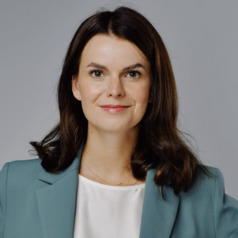
Lydia Ottlewski
Assistant professor, University of Southern Denmark
Dr. Lydia Ottlewski is an assistant professor in the Department of Business & Management at the University of Southern Denmark (SDU) in the field of “Consumer Culture Theory” – consumer and market research from a cultural perspective. She is an expert in the field of digital platforms, social innovation, and alternative families.
Less ![]()
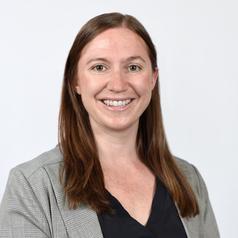
Lydia Ross
Assistant Professor of Educational Leadership and Innovation, Arizona State University
Lydia Ross (she/her) is an assistant professor for the Division of Educational Leadership in the Mary Lou Fulton Teachers College at Arizona State University. Her research broadly centers on issues of equity, access, and inclusion in K-12 and post-secondary education, focusing on STEM. Specifically, she aims to understand 1) how students access educational systems and opportunities, 2) student experiences within educational systems, and 3) fostering professional development (PD) opportunities for people facilitating educational experiences (i.e., faculty or school counselors). Dr. Ross’ work has been published in national and international journals, including Research in Higher Education, AERA Open, Teachers College Record, Journal of Women and Minorities in Science and Engineering, and the Journal of Higher Education Theory and Practice.
Less ![]()
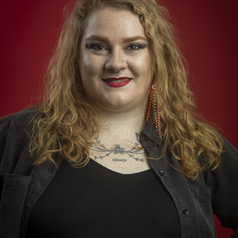
Lydia A. I. Toorenburgh
PhD Student, Anthropology, University of Victoria
Lydia has a Master of Arts and an Bachelor of Arts (Honours) and Minor in Indigenous Studies. They have worked at the University of Victoria as the Indigenous Student Recruitment Officer and most recently as the Tri-Faculty Indigenous Resurgence Coordinator where they were tasked with creating and leading decolonizing and Indigenizing initiatives in the faculties of Social Sciences, Science, and Humanities. They use their training in Indigenous Studies and Indigenous Anthropology, their experience as a staff member, and their lived experience as mixed settler and Bungi-Metis Two-Spirit person to work toward post-secondary decolonization and Indigenization. They are now pursuing their PhD in Anthropology and Indigenous Nationhood at the University of Victoria.
Less ![]()

Lydia Begoña Horndler Gil
Profesor en inmunología y biología del cáncer, Universidad San Jorge
Less ![]()
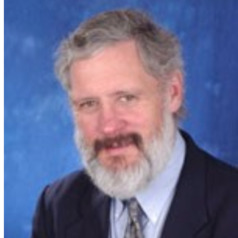
Lyke Thompson
Professor of Political Science, Wayne State University
Lyke Thompson has been teaching at Wayne State for about 30 years as a professor in the Department of Political Science and in the former College of Urban, Labor and Metropolitan Affairs. He has taught program evaluation, urban administration, Detroit Politics, and Michigan Politics. He became the director of Wayne State University's Center for Urban Studies in January 2003. During his administration of the Center he has collaborated with staff and community members to expand its capacity for research and intervention into areas including program evaluation, GIS, survey research, public safety, domestic violence, healthy homes, and climate change. The Center works intensively within Detroit and its metropolitan area both to understand urban processes and institutions as well as to improve the lives of Detroit's most challenged households.
Less ![]()
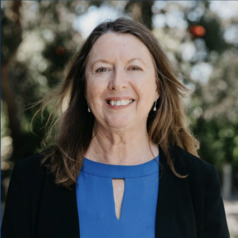
Lyn Griffiths
Professor, Queensland University of Technology
Distinguished Professor Griffiths is an active and respected molecular geneticist with more than 30 years’ experience. DProf Griffiths has brought a translational focus to medical research to increase QUT’s influence and its impact on human health as Director of the Centre for Genomics and Personalised Health which is focused on translating knowledge from genomics research. The Centre aims to discover better methods of diagnosing disease, develop targeted treatments based on genetic information, and train the next generation of translational genomics scientists. In addition, DProf Griffiths is a passionate advocate of the translation of medical research through commercialisation and is currently the Director of the MTP Connect and industry led Bridge and BridgeTech programs, undertaking commercialisation training for the pharmaceutical and medical devices-technology fields across Australia, respectively. DProf Griffiths’ own genetics research at the Genomics Research Centre has led to diagnostic breakthroughs for several neurogenetic disorders, including familial migraine, ataxia, epilepsy and hereditary stroke. Her research has appeared in more than 400 peer-reviewed international journals and she has obtained significant competitive and industry research funds to support her research team.
Less ![]()

Lynda Cardiff
Senior Research Fellow, Centre for the Business and Economics of Health, The University of Queensland
Less ![]()
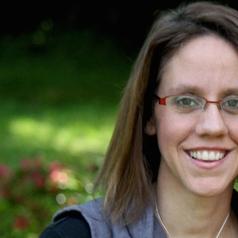
Lynda Collins
Full Professor, L’Université d’Ottawa/University of Ottawa
Full Professor with the Centre for Environmental Law and Global Sustainability. Counsel with Ecojustice Canada.
Less ![]()
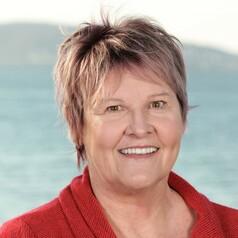
Lynda Goldsworthy
Research Associate, University of Tasmania
Following many years as advocate, policy analyst and manager working across the non-government sector, focusing particularly on climate, high seas and antarctic issues, Lyn undertook a PhD at the Institute for Marine and Antarctic Studies, University of Tasmania and is now a research associate at IMAS and member of Centre for Marine Socio-ecology
Less ![]()
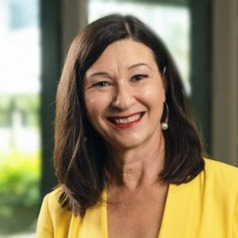
Lyndall Bryant
Lecturer in Property Economics, Queensland University of Technology
Lyndall Bryant has been on the academic staff QUT’s School of Built Environment and Civil Engineering as a lecturer in Property Economics since 2009. Prior to joining academia, Dr Bryant had almost 20 years working in the housing development, corporate property and finance sectors, holding management positions in some of Australia’s leading property development companies and consultancy firms including Stockland, Mirvac, Macquarie Bank and Ernst & Young.
She specialises in property development, property finance and economic sustainability (such as, feasibility analysis, finance, options analysis, and barriers to supply). She has written and presented research papers and reports on various property development, infrastructure and housing affordability matters as well as other financing related policy issues. These works had been used by a range of stakeholders including national corporations, government agencies and policy makers at all levels of government.
Dr Bryant is a Registered Valuer in Queensland as well as a Certified Practicing Valuer under the provisions of the Australian Property Institute. She sits on the national board of EnviroDevelopment, an independent, national sustainability rating tool; is a board member of the Pacific Rim Real Estate Society and serves on a number of University and industry committees. She is a regular presenter in the Urban Development of Australia’s (Qld) education series as well as at other industry events and training forums.
Dr Bryant holds postgraduate qualifications (GradDip in Advanced Finance and Investments) from the Securities Institute of Australia (FINSIA) and her PhD is from Queensland University of Technology.
Less ![]()
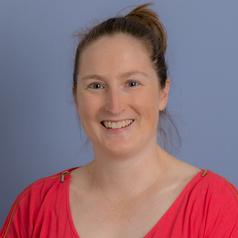
Lyndell Bruce
Senior Lecturer in Sport Science, Deakin University
Dr. Bruce is an expertise researcher who explores expert performance, factors contributing to expert performance and the development of expertise, with a focus on sport. With a strong track record on engaging with industry to solve applied sport challenges, Dr Bruce uses a multidisciplinary approach using a range of technologies and analytical techniques to offer insights into the research questions.
Less ![]()

Lynette Cheah
Professor and Chair of Sustainable Transport, University of the Sunshine Coast
Lynette Cheah is Professor and Chair of Sustainable Transport at the University of the Sunshine Coast in Queensland. She directs the Sustainable Urban Mobility research laboratory, which develops innovations and pathways towards sustainable cities, particularly in the area of mobility. Her research focuses on developing data-driven models and digital tools to assess and reduce the environmental impacts of passenger and urban freight transport. Areas of expertise include smart cities, intelligent transport, urban freight, transport modelling and simulation, technology and policy assessment, life cycle assessments, and material flow analysis.
Lynette is a strong believer in translating research into real-world impact. She served as Review Editor for the United Nations Intergovernmental Panel on Climate Change’s (IPCC) Sixth Assessment Report and is Coordinating Lead Author for UN Environment Programme’s Global Environment Outlook (GEO-7) report. From 2019 to 2024, she was a member of Singapore’s Public Transport Council, promoting sustainable, affordable, and inclusive public transport for all.
Prior to joining UniSC, Lynette was a tenured faculty member at Singapore University of Technology and Design (SUTD) and a Visiting Professor at the University of Victoria in British Columbia, Canada. As an active member in her academic communities, Lynette Cheah is Editor for Transportation Research Record and Journal of Industrial Ecology. She obtained her Ph.D. in Engineering Systems from MIT and Master’s in Management Science from Stanford University.
Less ![]()

Lynette Washington
Research Fellow, UniSA Business, University of South Australia
I hold a PhD in English and Creative Writing from the University of Adelaide, and am the Founder and Publishing Director of the independent press, Glimmer Press. I have worked as an Editor and Publicist for MidnightSun Publishing. I have edited numerous story collections and my own story collection, Plane Tree Drive, was published in 2017. It was Highly Commended in the Victorian Premier’s Literary Award and shortlisted for the MUBA. I have over twenty years’ experience as a writer, editor, manuscript assessor and teacher of creative and professional writing.
I also consult on publishing with students in Creative Writing at Flinders University, and am a Research Fellow in the School of Business at UniSA.
Less ![]()

Lynette R. Goldberg
Associate Professor, Wicking Dementia Research Education Centre, University of Tasmania
Lyn Goldberg, a speech pathologist, was recruited to the Wicking Centre in 2014 to develop a focus on oral health and function related to dementia, consolidating her background in speech pathology and international experience in interprofessional education and practice. Prior to 2014, Goldberg was the John and Ruby Hendren Distinguished Professor in the College of Health Professions at Wichita State University, Kansas, USA, and member of the Executive Board of the American Speech-Language-Hearing Association (ASHA), guiding the Association’s financial, long-term planning and multicultural initiatives. At the Wicking Centre, Goldberg is a Graduate Research Coordinator, online educator and community-based researcher.
With NHMRC-Dementia Collaborative Research Centre program funding ($99,752, 2016-17, CIA), Lyn initiated an innovative interprofessional program in which a speech pathologist, dentist, and nutritionist worked with residential care staff to screen the oral health, nutritional status, and swallowing ability of residents, and document residents’ perceptions of their health-related quality of life. Further philanthropic funding ($34,300) enabled a clinical trial to document the positive effects of an evidence-based oral health program to decrease chest infections and aspiration pneumonia. Findings resulted in a policy change within the national organization.
Lyn's work now focuses on Aboriginal-led, community-based research to promote health and wellbeing and reduce dementia risk. She served on the National Committee for the Action Plan to implement the Aboriginal and Torres Strait Islander Roadmap for Dementia Research and Translation. In the past five years she has served on externally funded grants totaling $11.5M (lead CI on 5, AI on 3), complemented by University/College funding of $529,314. She currently leads a national team of Aboriginal and non-Aboriginal early, mid-, and senior career researchers and Aboriginal community leaders in the MRFF Consumer-Led Research opportunity, Privileging the spirit, voices, and culture of Aboriginal people in dementia care: education for non-Aboriginal healthcare providers (2023-25). She is an AI on two Aboriginal health related NHMRC Centre of Excellence grants: Good Spirit, Good Life: better health and wellbeing for older Aboriginal and Torres Strait Islander peoples (2021-25) and On TRACK (Teaching, Research And Community Knowledges): promoting brain health with older Aboriginal and Torres Strait Islander peoples (2022-2026). In the past 5 years, Lyn has published 24 peer-reviewed journal papers and accrued >600 citations.
Less ![]()
- Market Data























